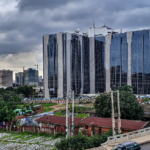Fitch Ratings, one of the global Rating Agencies, has said that has said Nigeria faces major economic challenges ahead of its elections due on 25 February.
In a statement on Tuesday, Fitch said policy choices by the incoming administration could have a significant impact on the country’s credit profile.
It noted that the Nigerian Supreme Court’s suspension of a 10 February deadline for exchanging old banknotes into new eases, at least temporarily, the risk of intensifying cash shortages.
The Agency noted however, that the demonetisation drive is still likely to be disruptive in the near term.
AfricaCom 2022: Huawei launches transformative fintech offering to revolutionize mobile money
Alaafin of Oyo oldest palace worker dies at 120
It noted that “associated cash shortages may hit consumer spending and boost demand for foreign currency, aggravating foreign-exchange shortages. It is not yet clear whether there will be offsetting longer-term economic benefits, such as greater use of the formal banking system or enhanced use of digital payment systems.”
The comment on the Naira redesign comes as the governor or the Central Bank of Nigeria, Godwin Emefiele, on Tuesday said there is no need to shift the February 10 deadline, as the Bank was to address the new notes supply issues.
He said the said the tension and elevated agitation over the currency redesign were staged and sponsored propaganda.
Fitch noted further that Nigeria faces numerous other challenges to its fiscal sustainability, including external finances and economic outlook.
Fitch downgraded Nigeria’s rating to ‘B-’ from ‘B’ in November 2022, with a Stable Outlook, which it said reflected continued deterioration in debt servicing costs and external liquidity.
Moody’s Investors Service recently downgraded Nigeria’s long-term foreign currency and local-currency issuer ratings could raise the country’s cost of borrowing in the international capital market. Another Rating Agency, Standard and Poor’s, also revised Nigeria’s outlook to ‘Negative’ from ‘Stable’ and affirmed the country’s ‘B-/B’ long- and short-term foreign and local currency sovereign credit ratings on the country. It also lowered its long – and short-term Nigeria national scale ratings to ‘ngBBB-/ngA-3’ from ‘ngBBB/ngA-2’.
“Our base case assumes that the subsidy on petrol, a key drag on the public finances, will be reduced in 2023, but phased out more gradually than in the government’s latest budget. We consider the next administration is likely to face pressure to continue it and concessions on this front could make consolidating the public finances more difficult,” Fitch said.
Fitch said it expects some improvement in crude oil production to help offset lower oil prices in 2023.
It noted that Nigeria’s crude oil output in 4Q22 was 15% higher than in 3Q22, and rose further in January to 1.26 million barrels a day (mb/d), but said this was still well below Nigeria’s budgeted 1.69mb/d for 2023 and its OPEC quota of 1.8 mb/d.
“This partly reflects security issues that we believe will continue to hamper production,” it said.
Fitch also said Nigeria’s fiscal profile will remain weak in the medium term.
According to the Agency, General government interest/revenue is extremely high (47% in 2022 by Fitch’s estimate)” and we expect it will remain so given constraints on revenue mobilisation, increasing debt and high interest rates,” it noted.
It said structurally low non-oil revenue, spending pressures and weak economic growth imply substantial fiscal financing needs.
“The government faces external debt amortisations of USD2.5 billion in both 2023 and 2024, an increase on recent years, although the majority is bilateral and multilateral debt service,” it observed, adding that it had said in November that increased financing constraints or signs of difficulty in meeting debt servicing costs could lead to negative rating action.

 Join Daily Trust WhatsApp Community For Quick Access To News and Happenings Around You.
Join Daily Trust WhatsApp Community For Quick Access To News and Happenings Around You.


